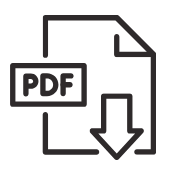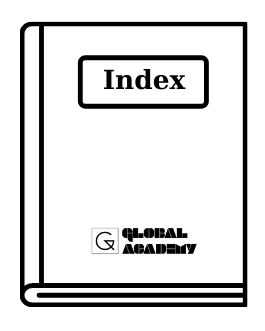Corruption and Its Impact on the Economy (printed book and e-book)
Ph.D. Vicente Humberto Monteverde
University of Moron-Argentina


"Man loves his chains"
Phrase of a sage from India-Sri Aurobindo
The corsairs were private sailors. Who were hired and served in private ships, with a license to attack ships from an enemy country. Corruption can often be a practice of systematic looting or banditry, as ancient as crime itself and older than piracy., as crime itself and older than piracy. The corrupt steal the disposable income from various sectors , and society becomes a slave to these practices, since this corruptive activity becomes common, like life itself, following the example of the meaning of words, bribery, means bribery, in Spanish it becomes a rascal, a person who cheats or steals, this play on words shows us that in addition to piracy (pirate fishing in Thailand, Somali pirates, etc.), it is repealed today. In analogy, corruption assumes its role, through the performance of its networks, as a game of rascals, people who associate in groups to obtain benefits, from the private sector, public or political, through the practice of acts of corruption. As we will see in the following chapters, sometimes the intentions are not economic, some acts of corruption, are produced by avoiding rules, jump regulations, and / or circumvent regulations, but what is important and majestic, is the convergence towards an "art of corruption "that society observes and supports daily. It is a multi-causal phenomenon, today with the sophistication of transactions, off shore bank accounts and with the participation of "facilitators" of operations, the corrupting cocktail is complete, as well as the possibilities of managing money electronically. Obtaining perks, contracts, or paying lower taxes, we see that corruption becomes an art.
The book redefines three areas of origin of corruption, the political sphere, with full influence in the Public sector and private sector. Continuing the globalization of phenomenon corruptive, and the appearance of interest groups in the degradation phenomenon, we develop the theory of networks, within it, we will see the characteristics of networks, open and closed networks, reaching probable "micro- corruptive worlds, or small worlds of corruption, these worlds emerge, in response to legal and illegal lobbyists. What is the basis for the emergence of corruption networks, social networks, the comparison of the aforementioned networks and their differences is developed, their breeding ground is systemic corruption or "Corruptocracy". We will review the corruption in the history of the world, through some empires, which were degraded, until being engulfed by corruption itself. The hypotheses about corruption will serve us, to determine the difference between the paradox as belief and the truth, to distinguish between the false and the true.
In the chapter on the cost of corruption, data from journalistic investigations are used, and the percentages are refined based on the reality of these reports, in the bribe rate and the public works surcharge rate. Moreover, in economics it is important to model this phenomenon, in this chapter, we will analyse the economic models that best represent the economy of corruption. So far we have made the theoretical approach to the subject, with its definitions, types, models, mainly these subsequent chapters will serve us to observe the effects of corruption, investment, economic increase of live level, the allocation of expenditure, economic efficiency, as hidden tax, as an externality and as a natural phenomenon.
As checking and conclusions we see two chapters of application and economic demonstration, of effects of the corruption on the economic and fiscal variables. As conclusion lets not ask for permission to fight against corruption, let's do it, we need action, not just observe, television shows, or punish us, asking us why this phenomenon happens to us. Culture is a fundamental element in corruption, corrupt people come from our own society, let's make a self-criticism, without flagellating ourselves, but let's begin to fight against the serious corruption phenomenon, and work in all areas: private, public and political, through punishment, prevention and education, and in a few years, things will change.
Published by:
Global Academy Publishing House
Cover & Design: Global Academy Publishing House & Erhan Karaman
ISBN Number: 978-625-8284-24-9
Publishing Date: October 26, 2022
All rights of this book belong to Global Academy Publishing House. No part of this publication may be reproduced, stored, retrieved system, ortransmitted, in any form or by any means, without the written permission
of the Global Academy Publishing House. Any person who does any unauthorized act in relation to this publication may be liable for criminal prosecution and civil claims for damages.
©Copyright October, 2022
Certificate No: 64419
Adress: Konutkent 2955. St. Oyak 1 No: 8/6 Cankaya / Ankara / TURKIYE
The individual essays remain the intellectual properties of the contributors.
e-mail: globalyayinlari@gmail.com
Place of Publication: Kaplan Ofset
Adress: Davutpaşa caddesi, Güven iş Merkezi, C Blok No:279-280 İstanbul
Certificate No: 44367